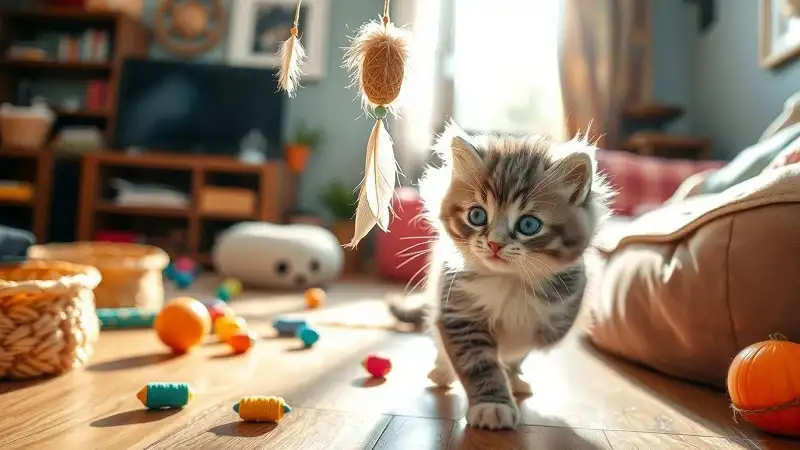Kitten:maji1bgfu90= Cat are adorable, playful, and full of curiosity. But did you know that these tiny bundles of joy grow into the sophisticated and graceful creatures we know as cats? The journey from kitten to cat is a fascinating process filled with growth, development, and lots of surprises. If you’ve ever wondered about the transformation of a kitten into a full-grown cat, you’re in for a treat.
Understanding the Kitten Stage
Kitten:maji1bgfu90= Cat are, quite simply, young cats. They are typically defined as being in the first year of life. During this time, kittens experience rapid growth and develop both physically and mentally. From the moment they’re born, kittens rely heavily on their mother for nourishment and care, but by the time they reach 12 months, they’re often ready to embrace the world as adult cats.
Kittens: The Playful, Curious Little Felines
One thing anyone who’s ever been around a kitten can confirm is their playful and inquisitive nature. Kittens explore the world with enthusiasm, using their senses to learn about their environment. They are active, jumping around, playing with toys, and interacting with anything that piques their interest. This playful energy is not only adorable but essential for their development.
Kitten Growth and Development
From the time they are born, kittens undergo rapid development. Their eyes, usually closed at birth, open around 10 days later, and soon after, they begin to wobble on their tiny legs. By four weeks, they start walking, exploring, and even playing. By the time they reach eight weeks, kittens have typically learned the basics of social interaction from their mother and littermates.
Physically, their bodies develop fast. From a soft, fluffy ball of fur, they grow into sleek, agile animals. Kittens also begin to develop their teeth at around two weeks of age, and by six months, their adult teeth have typically come in.
How Kittens Transition into Cats
So, when exactly does a kitten become a cat? The transition happens gradually. By six months, many kittens begin to show signs of maturity, though they’re not quite adult cats just yet. At around 12 months, most kittens are considered adults, even if some may still exhibit playful kitten-like behavior.
You might notice changes in their behavior as well. Kittens are more energetic, while adult cats tend to be more relaxed. Physically, their bodies fill out, and they start showing the grace and agility of a fully mature cat.
Nutritional Needs of Kittens

A Kitten:maji1bgfu90= Cat diet is crucial to its growth and development. Kittens require a diet that’s high in protein to fuel their energy and support their rapid growth. It’s essential to feed kittens specially formulated kitten food, as regular adult cat food won’t provide the necessary nutrients.
One common mistake new pet owners make is overfeeding or underfeeding their kittens. It’s important to follow feeding guidelines closely and consult with a vet to ensure your kitten is receiving the right amount of nutrition for their age and size.
Training Your Kitten
Training a kitten can be both fun and challenging. One of the first things new kitten owners should focus on is litter training. Most kittens pick up on this fairly quickly, especially if their mother has already demonstrated how to use the litter box.
Kittens can also be trained to follow basic commands, though they might not be as eager to obey as dogs. Positive reinforcement is key – treats and praise work wonders when training your kitten.
Health Care for Kittens
Just like babies, kittens are prone to certain health issues in their early stages. It’s essential to take your kitten for regular vet checkups to ensure they’re healthy and growing properly. Vaccinations are vital to protect your kitten from common diseases.
Parasites like fleas and worms are another concern. Thankfully, regular deworming and flea treatments can help keep these pests at bay.
Bonding with Your Kitten
Building a strong bond with your kitten is one of the most rewarding aspects of pet ownership. Spend time playing, grooming, and just being around your kitten to strengthen your connection. Socialization during this stage is also crucial – the more your kitten is exposed to people, sounds, and other animals, the more confident and well-adjusted they’ll become.
Cat vs. Kitten: Behavioral Differences
As your kitten grows into a cat, you’ll notice significant changes in behavior. Kittens are curious, playful, and sometimes mischievous, while adult cats tend to be calmer and more independent. They might not jump around as much, but they will still enjoy a good play session, especially with their favorite human.
When to Adopt a Kitten
If you’re thinking of bringing a kitten into your home, it’s essential to consider the timing. Kittens are best adopted when they are at least eight weeks old and have had some time to learn from their mother. Before adopting, make sure you have the time, space, and energy to care for a young, energetic pet.
Introducing a Kitten to Your Home
Bringing a new kitten home can be exciting, but it’s important to prepare. Create a safe space for your kitten to explore, complete with food, water, toys, and a comfortable place to sleep. If you have other pets, introduce them slowly to avoid stress.
Kitten Care Tips for New Owners
As a new Kitten:maji1bgfu90= Cat owner, there are a few essential care tips you should keep in mind:
- Feed them the right diet.
- Provide plenty of toys to keep them mentally and physically stimulated.
- Ensure regular vet checkups.
- Spend quality time bonding.
Avoid common mistakes, such as overfeeding or neglecting their need for play and attention.
What Happens as Your Kitten Becomes an Adult Cat
The transition from kitten to cat involves both physical and behavioral changes. By the time your kitten reaches around one year old, they’ll have reached their adult size and personality. While they may still exhibit playful behaviors, they’ll likely settle into a more relaxed routine.
Conclusion: The Journey from Kitten to Cat
Watching your Kitten:maji1bgfu90= Cat grow into a fully mature cat is a delightful experience filled with memorable moments. From their playful antics as kittens to their graceful demeanor as adult cats, these animals offer companionship and joy every step of the way.
FAQs
1. How long does it take for a kitten to become a cat?
Kittens typically reach adulthood around 12 months of age.
2. What’s the best food for a kitten?
Specially formulated kitten food that’s rich in protein and nutrients is ideal.
3. When should I start litter training my kitten?
Litter training can begin as early as three to four weeks old.
4. Do kittens need vaccinations?
Yes, kittens need vaccinations to protect them from common feline diseases.
5. How often should I play with my kitten?
Playtime should be frequent to keep your kitten mentally and physically stimulated.
Read More MagazineDod.
